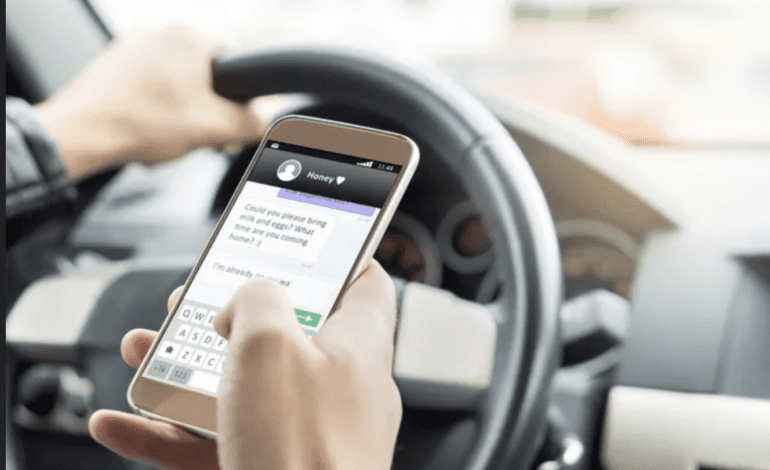LANSING – An effort to make using a phone — not just texting — illegal while driving is seeing a renewed effort in the Michigan Legislature. The “hands-free” legislation would expand on the 2010 law that made texting and driving illegal in Michigan.
A package of three bills — House Bill 4250, H.B. 4251, and H.B. 4252 — would essentially ban any hand-held use of a phone while driving, including using phones or other electronic devices for streaming video, making video calls and using social media sites. “Hands-free” options such as Apple CarPlay, in-car GPS and Bluetooth would remain accessible under the proposed plan.
Families of both distracted drivers and their victims have been advocating for such legislation in Lansing for years, including Steve Kiefer, who lost his son Mitchel in 2016.
A freshman at Michigan State University, Mitchel was driving on the highway to return to East Lansing when he came across a slow down.
“Beautiful Monday morning and he slowed down for traffic and unfortunately the young lady behind him did not,” Kiefer, a former GM executive, recalled.
Mitchel was rear-ended and pushed over a median into oncoming traffic, where he was hit and instantly killed.
Mitchel’s death shook the Kiefer family, prompting Steve to create and chair The Kiefer Foundation, which is focused on reducing the number of distracted driving deaths.
The Kiefer Foundation has worked to implement distracted driving legislation nationally.
Twenty-five states currently have hands-free distracted driving laws, Kiefer said.
“In all the states that have the laws, the crashes and deaths and even insurance rates are coming down, so we know they work,” he said.
There was no opposition to the bills voiced by lawmakers during Tuesday morning’s bipartisan House Transportation Committee, which heard testimony on the bills.
“I’m convinced that if I can talk to someone for 10 minutes and tell Mitchel’s story and explain just how logical this is, we’ll win everyone over,” Kiefer said.
Kiefer’s testimony was able to sway Republican Rep. Pat Outman, who admitted during the hearing that he had changed his mind after originally opposing the bills over what he described as concerns about the “big hand of government approach to things.”
“As far as the primary intent of the bill, I always have supported that and I want to see people be safe on the roadways,” Outman (R-Six Lakes) said. “I just had some philosophical concerns in the past, and I’ve really been won over by some of this compelling testimony. I just – I can’t stand to see lives continue to be taken when we can do something about it.”
Outman said he, like many drivers, is guilty of distracted driving.
“People are so addicted to these phones that I think they’re still going to do it,” he said. “But this is certainly going to help. At least, I hope it does.”
Similar legislation has been introduced in at least three legislative terms now. Last year, the package was passed through a Republican-led committee, but never made it through the legislature.
“We have colleagues, friends who have now been at this for 15 years,” Kiefer said. “And if any of them would have been successful, maybe my son Mitchel would have been saved.”
There’s optimism among supporters and lawmakers that the legislation will become law. Kiefer said the hearings “felt different this time”, while Outman said he thinks the legislation will make it to the governor’s desk “in a timely fashion.”
Advocates like Kiefer said they wanted to get the bipartisan package across the finish line by Memorial Day, when the so-called “100 Deadliest Days” begins. The “100 Deadliest Days” is the period between Memorial Day and Labor Day when deadly teen crashes dramatically increase.
The House Transportation Committee said it will take a vote on the distracted driving legislation in the weeks to come. Duplicate bills, including Senate Bill 239, S.B. 240, S.B. 241, are being considered in a Senate committee.






Leave a Reply